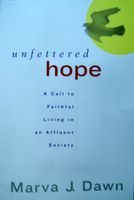Chris Erdman and indeed Paul Fromont continue to stimulate my thinking about the ‘posture’ of leadership that sets us free, fills us with hope as witnesses to the abundance found in Christ for us as his people. I’ve been gradually piecing something together based around the older traditional spiritualties of the Christian faith and been considering the ‘Rule’necessary for us as a mission community of grace to help us in the practices’ of the faith. We see 3 key areas for us here in terms of Worship, Habits and Helps. (Live worshipfully, help others and have the habits of faith) Considering this then, I see my posture as missionary in all this to be one of paying attention (prophetic), patience and to relate and care. There may well be more to add, but for now this seems to be clear to me. We operate presently with 3 hubs ofr worship and activity: at the Roslyn end it happens 1( all age and story based) and 3 (communion with reflection and time together) Sundays. I’m looking to develop a ‘new’ worship focus, like Steve Taylor (undertaking Espresso as a new cafe church (experimental stages). In our context though I want part of what we do to form something of the overall rhythm and pattern of our communal life and from this spawn other ‘groups’. On Easter/Holy Week we ran 7.15-7.45 am/pm reflective services. Following these feedback (if seen as a test run) reveals that it provided a safe place (someone not connected with ‘church’ popped in and in their need we ha a pastoral time, their comment was that it felt a ‘safe place’. So… I’m hosting a gathering soon to run this past some folks interested and willing to participate together in. Images of Caim and coracle seem apt for us now as one aspect affirms God’s presence, the other the trusting, journeying, risking and a ‘spiritualty of the insecure’.
So I am seeking out others to have conversations with, as I also sense that in the intimacy of the space we have in the sanctuary at Roslyn we not only put this in place each week for Highgate, but that it could be wider.
::
My dream, if you ask? To offer a ‘Place to stand’ that is a place
of worship where people come closer in their walk wit God through various forms,
but perhaps especially through the Ignation, Benedictine, reformed and other
spiritualities informing us; a place of quiet, to cease and rest; a place
of hospitality; a place of learning, my hope would be to have teaching on
mission that helps and encourages and that there is a sense of and dynamic here
of worship, learning (study and reflection) and some experience of this in
community that is set in and around mission contexts in Dunedin. My
posture, our posture then in mission one of faithful obedience.::
